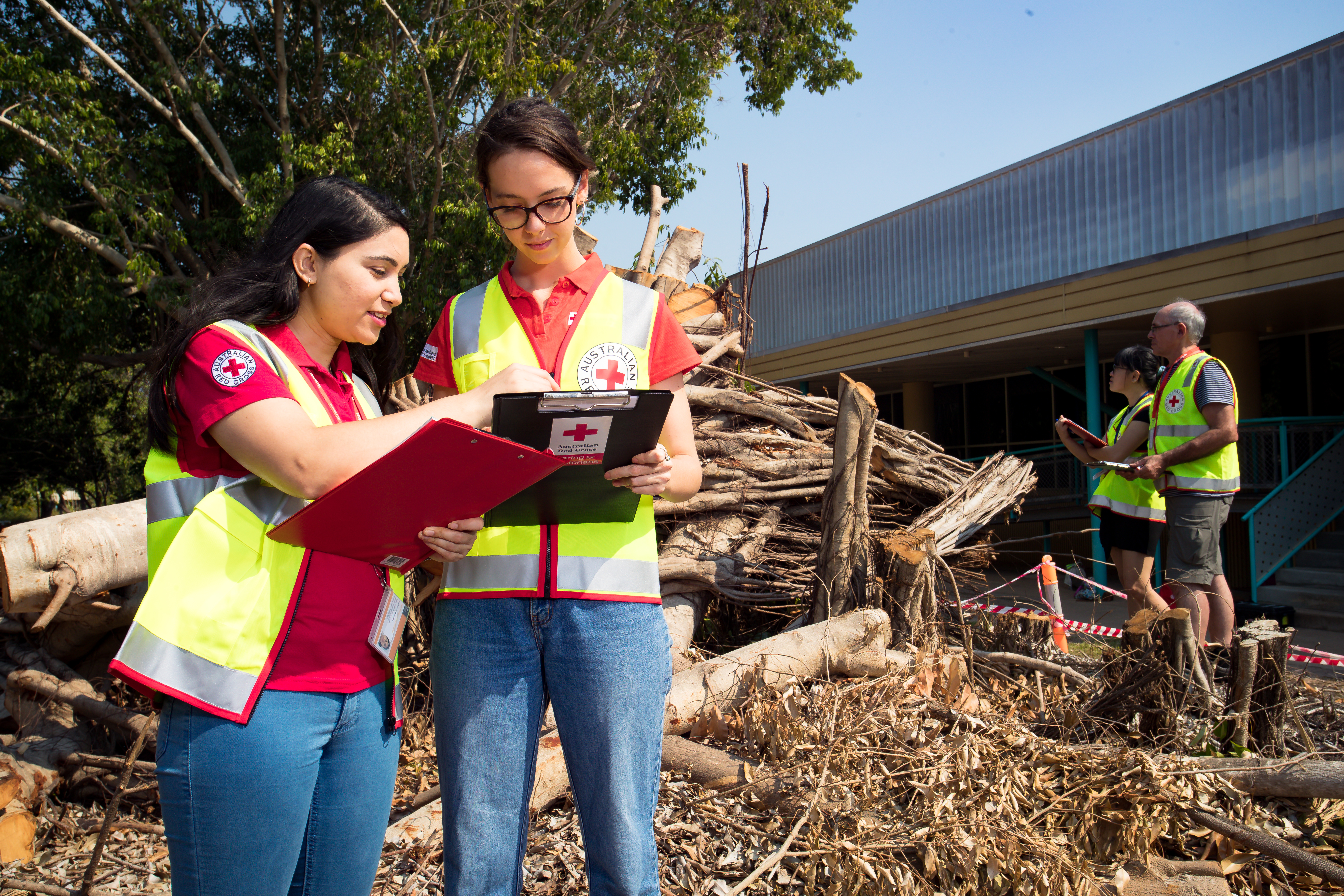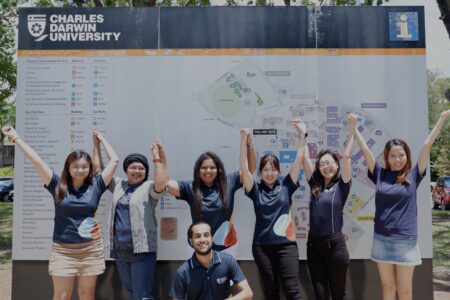Having grown up in Vietnam before spending three years working with Indigenous Australians in one of the Northern Territory’s largest remote communities, Thanh Nga Dang (Lucy) realised her calling was to pursue a career that could positively impact the lives of others. Hence her decision to study Humanitarian Aid and Development at Charles Darwin University (CDU).
“Witnessing the challenges that people in my country and Aboriginal people face inspired me,” she says. “Although I have a background in Human Resource Management, this field of study is still relatively new in my country and is not officially taught in universities.”

Source: Charles Darwin University
Plus, life in the Northern Territory was too good to give up. CDU is based in Darwin, known for its beautiful coastal scenery, stunning sunsets, and tropical climate. Friendly and multicultural, it was a community that allowed Lucy to learn from diverse cultures, including Indigenous knowledge and practices.
On campus, Lucy immersed herself in an academic and social environment that embodies the essence of humanitarian studies: humans helping humans. Active in student clubs like the International Lions Club, Kindness Shake and the Australian Red Cross, she found many opportunities to contribute to the community and build meaningful connections.
“These experiences have reinforced my commitment to humanitarian work and my desire to contribute to the well-being of diverse communities,” says the student. “I also hope to apply my acquired knowledge and skills to contribute to my country’s development in the future.”
CDU’s staff and lecturers have played a key role in her journey, offering continuous support and engaging Lucy and her peers with practical assignments and case studies — all of which helped her secure a job in her field during her first year.
The Bachelor of Humanitarian Aid and Development was designed to nurture this level of career readiness. Within three years of full-time study, students explore concepts like cultural studies, sociology, ethics, Indigenous knowledges, community development, international humanitarian assistance and development, project management and language studies. Each lesson is led by industry practitioners specialising in national and international community work, disaster relief and development.

Source: Charles Darwin University
And when it comes to real-world context, there truly is nowhere better than the Northern Territory. The region has various geographical features, from tropical coastlines to vast deserts — each presenting its own set of challenges, including coastal erosion, flood plains and fire risk regions. CDU’s proximity to South Asia, Southeast Asia, and the Asia-Pacific region gives students an even broader perspective. This makes it an equally apt place to pursue a Master of Emergency and Disaster Management.
“Our curriculum is built on experiences from the geographic regions that are arguably the most prone to and affected by various types of disasters,” shares Associate Professor Akhilesh Surjan. “They are also informed by CDU’s relationships with nationally and internationally respected industry partners.”
This relevant knowledge provides students with the technical, managerial and leadership skills required to progress in their current careers, or to enter new career pathways. They are also welcome to focus on units that matter the most to them, thanks to the range of specialist elective units on offer.
This flexibility has shaped graduates who go on to serve as emergency responders, disaster risk management specialists, humanitarian aid workers, community development practitioners, policy advisors and researchers for government, NGOs and in the private sector. Most didn’t have to wait too long to secure employment in their field, considering the local, national and global demand for their expertise.
“The growing incidence of human-made disasters and disasters caused by natural hazards is creating a higher demand for effective disaster management strategies and preparedness across the globe,” says Rodney Eksteen, Lecturer in Emergency and Disaster Management.

Source: Charles Darwin University
Despite their varying specialisation, all CDU graduates can look forward to a future filled with rewarding careers. As emergency management coordinators, they could lead and coordinate response efforts during disasters. As policy advisors, they could influence and shape disaster management policies at local, national, or international levels. As consultants, they could offer expert advice to governments, NGOs, and private sector organisations on cutting-edge disaster management strategies. And as educators, they could inspire and mentor the next generation of disaster management professionals.
Both the Bachelor of Humanitarian Aid and Development and Master of Emergency and Disaster Management teach the knowledge and skills required to make a tangible difference. Choose one of them today to nurture your passion and amplify your impact. Learn more here.
Follow Charles Darwin University on Facebook, Instagram, LinkedIn, Weibo and YouTube













